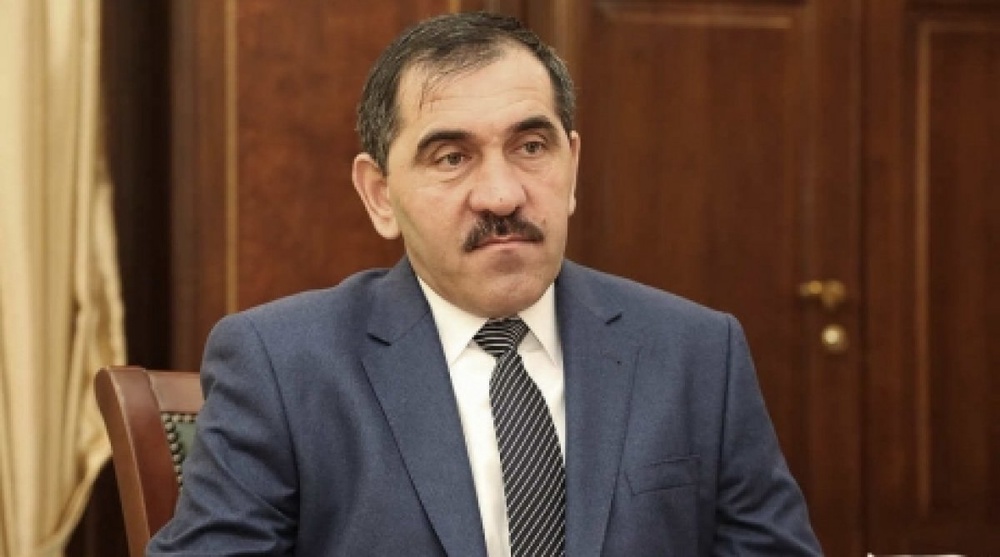
Head of the southern Russian republic of Ingushetia Yunus-bek Yevkurov expressed his gratitude to Kazakhstanis in a letter addressed to President Nazarbayev, Tengrinews reports citing Akorda. Yevkurov emphasized that February 23, 1944 is one of the most tragic dates in the history of Ingush people. On that day 70 years ago in a blink of an eye they lost their homeland. More than a half of the nation was forever lost to mass deportation and repression by the Soviets. “Thousands of Kazakhstanis helped our nation to survive those inhuman conditions. They shared our pain, gave us shelter and bread, nursed the sick and buried the dead. On behalf of the Republic of Ingushetia and myself I want to express my sincere gratitude to the Kazakh nation for the help they gave to people who lost their land in those harsh years,” the letter said. The Head of Ingushetia noted that Kazakhstan remains a second homeland for many Ingush people. Many of them hold citizenship and live in Kazakhstan. He stressed that it became possible thanks to Nursultan Nazarbayev’s policy of equality of nations in Kazakhstan. As of today, there are more than 15 thousand Ingush people living in Kazakhstan. The total Ingush population in the world makes 700 thousand people. This year February 23 marks the 70th anniversary of Bolshevik deportation of Ingush and Chechens from their homelands. The Ingush are a Caucasian native ethnic group of the North Caucasus. On 23 February 1944 the entire Ingush and Chechen populations were deported to Kazakhstan, Uzbekistan, and Siberia on the orders of Soviet leader Joseph Stalin. Up to 30% of the population perished during the journey or in the first year of the exile. The Prague Watchdog claims that "in the early years of their exile about half of the Chechens and Ingush died from hunger, cold and disease". The deportation was classified by the European Parliament in 2004 as genocide. After 13 years of exile Ingush were allowed to return to Checheno-Ingushetia.





Head of the southern Russian republic of Ingushetia Yunus-bek Yevkurov expressed his gratitude to Kazakhstanis in a letter addressed to President Nazarbayev, Tengrinews reports citing Akorda.
Yevkurov emphasized that February 23, 1944 is one of the most tragic dates in the history of Ingush people. On that day 70 years ago in a blink of an eye they lost their homeland. More than a half of the nation was forever lost to mass deportation and repression by the Soviets.
“Thousands of Kazakhstanis helped our nation to survive those inhuman conditions. They shared our pain, gave us shelter and bread, nursed the sick and buried the dead. On behalf of the Republic of Ingushetia and myself I want to express my sincere gratitude to the Kazakh nation for the help they gave to people who lost their land in those harsh years,” the letter said.
The Head of Ingushetia noted that Kazakhstan remains a second homeland for many Ingush people. Many of them hold citizenship and live in Kazakhstan. He stressed that it became possible thanks to Nursultan Nazarbayev’s policy of equality of nations in Kazakhstan.
As of today, there are more than 15 thousand Ingush people living in Kazakhstan. The total Ingush population in the world makes 700 thousand people.
This year February 23 marks the 70th anniversary of Bolshevik deportation of Ingush and Chechens from their homelands.
The Ingush are a Caucasian native ethnic group of the North Caucasus.
On 23 February 1944 the entire Ingush and Chechen populations were deported to Kazakhstan, Uzbekistan, and Siberia on the orders of Soviet leader Joseph Stalin. Up to 30% of the population perished during the journey or in the first year of the exile. The Prague Watchdog claims that "in the early years of their exile about half of the Chechens and Ingush died from hunger, cold and disease". The deportation was classified by the European Parliament in 2004 as genocide.
After 13 years of exile Ingush were allowed to return to Checheno-Ingushetia.


 +7 (777) 001 44 99
+7 (777) 001 44 99















































